Watermelons are a delicious fruit that many of us eat in large quantities from about the end of June to the beginning of September. They consist mostly of water, but in addition to it, watermelons contain a huge amount of vitamins and minerals, so it is a very healthy product. For example, it contains a lot of potassium, which plays an important role in the functioning of the nervous system and muscle development. Also, eating watermelon normalizes blood pressure and generally has a positive effect on the human body. For most people, watermelons, even in large quantities, are relatively harmless, because the body quickly eliminates all excess. However, some people may experience an overdose of watermelon, which is accompanied by weakness, heart problems and other organ problems.
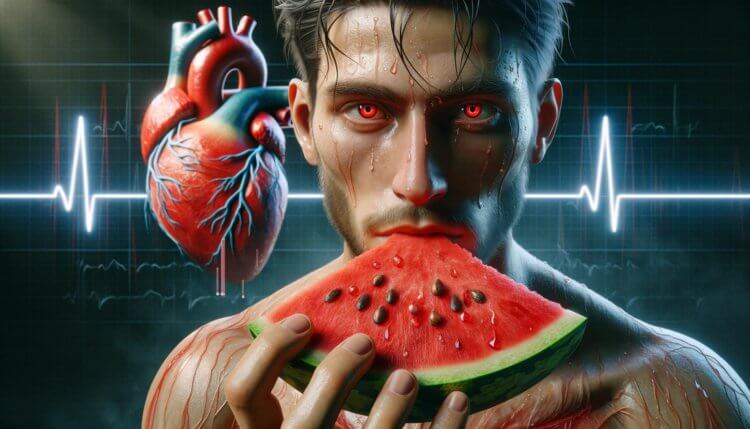
Some people shouldn't eat too much watermelon – you may need emergency help
Contents
< ul class="toc_list">
What is contained in watermelons
The reason some people feel sick after drinking watermelon is because it contains a high concentration of the aforementioned potassium. One piece of watermelon (about 286 grams) contains about 320 milligrams of this mineral. By eating one slice, women replenish 12% of the daily requirement of the substance, and men – 9%.
In healthy people, excess fluid is released naturally, along with excess potassium and other minerals. However, this does not happen in people with chronic kidney disease. This is the name of a slowly progressive disease in which the kidneys stop filtering substances, and they remain in the blood.
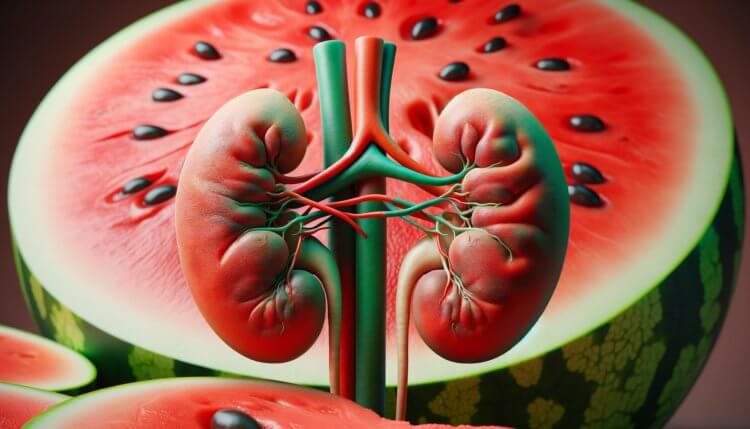
People with kidney disease should be careful with watermelons
Chronic kidney disease deficiency can develop due to a huge number of factors. Among them are obesity, urinary tract infections, poor diet, use of certain medications, and so on. If you have any health problems, you should definitely consult a doctor.
Read also:Scientists have discovered new beneficial properties of watermelon
What is hyperkalemia
People with chronic kidney disease, with frequent consumption of watermelon, experiencehyperkalemia—a condition in which too much potassium is retained in the blood.
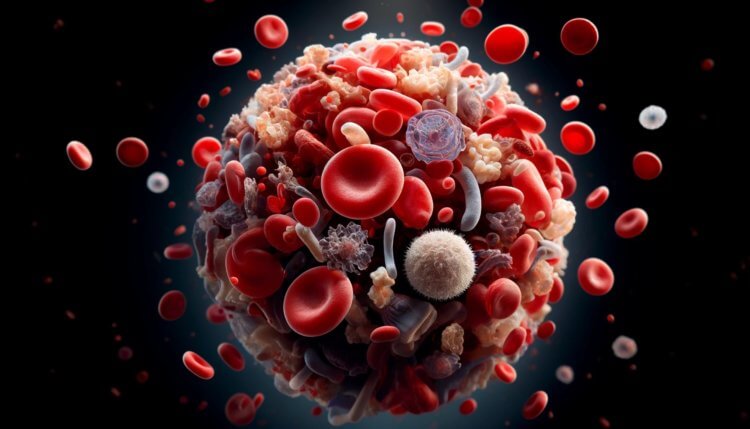
In people with kidney disease, eating watermelons causes excess potassium
The authors of the scientific publication IFL Science cited the example of three people with kidney disease who developed hyperkalemia due to the consumption of excessive amounts of watermelon. During a medical examination, they were found to have between 6.6 and 7.4 millimoles of potassium per liter of blood. For comparison, 3.5 to 5.0 millimoles is considered normal. All of them consumed watermelon in pure form or as juice every day for three weeks to three months.
Scientific achievement:How Russian scientists grew watermelons in Antarctica
What happens if you eat a lot of watermelons
One patient, despite the high concentration of potassium in the blood, did not have any special health problems. But in two other cases, hyperkalemia manifested itself with severe symptoms. In one patient, excess potassium caused a decrease in heart rate. Another man's heart problems were so severe that he had to use a defibrillator to restore his heartbeat.
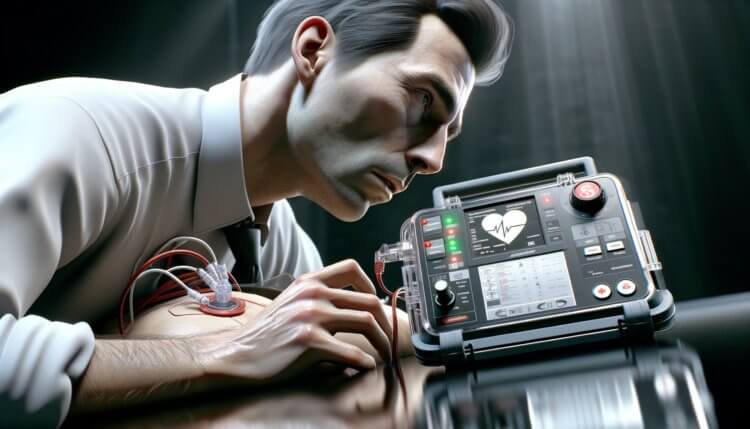
In rare cases, hyperkalemia requires emergency medical care
Patients also experienced muscle weakness, nausea, shortness of breath and chest pain. Fortunately, they were quickly cured with medication and avoidance of watermelon. A few months after starting treatment, medical examination results showed that their blood potassium levels had returned to normal. Subsequently, people felt good and did not complain about their health.
Memo for the summer:How to choose a sweet watermelon without nitrates and harmful substances
What foods should you not eat too much
It is important to note that other foods can cause hyperkalemia, including bananas, potatoes and tomatoes. Many people do not know that watermelons can lead to such problems. Therefore, this article can be considered a good warning. You can eat watermelons, but if you have kidney problems, you need to know when to stop.
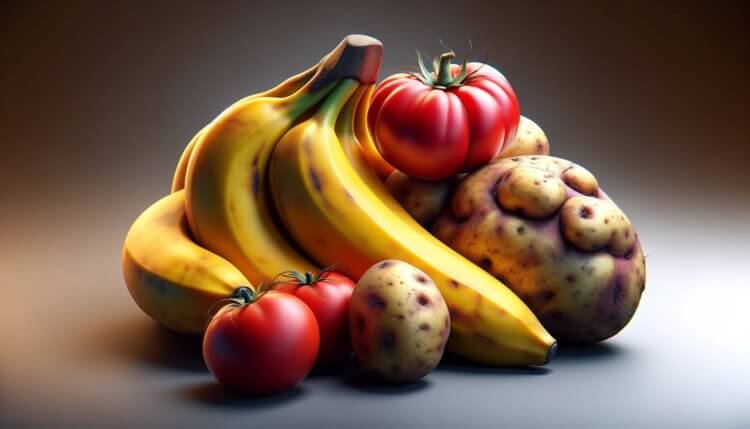
You need to know when to stop with any product
An overdose can also be caught from other products, and the consequences will be different. For example, if you drink too much coffee, you may experience tremors in your arms and legs and flashes before your eyes. If you eat a lot of tuna, you can be poisoned by mercury, which can cause numbness in your limbs and vision problems. You can even get sick from drinking too much water, because it greatly thins the blood, reduces sodium concentration and causes electrolyte imbalance.
If you want to discuss this article, check out our Telegram chat. We also host interesting quizzes and surveys there!
You can read more about all this in our article “5 popular foods that can cause an overdose.” Be sure to read and share the link with your family and friends, everyone should know this!